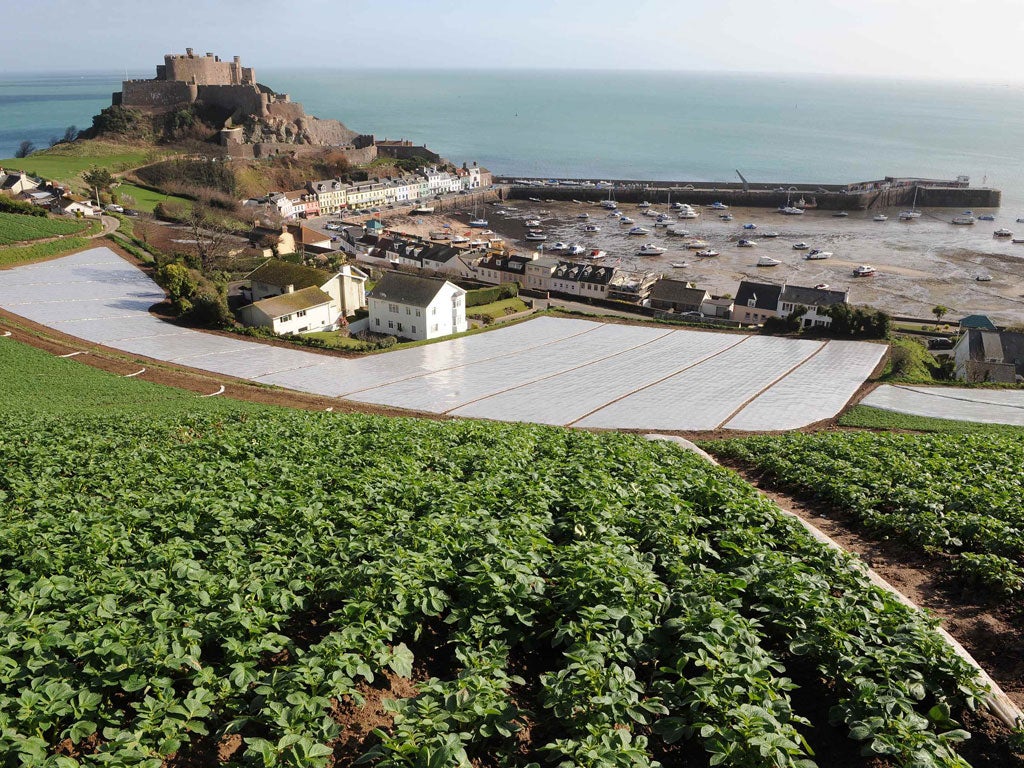Brexit: Jersey Royal potatoes 'could be left rotting in fields' due to lack of EU workers
'We are struggling to do everything we need to do, as this is our busiest time of the year'

Your support helps us to tell the story
From reproductive rights to climate change to Big Tech, The Independent is on the ground when the story is developing. Whether it's investigating the financials of Elon Musk's pro-Trump PAC or producing our latest documentary, 'The A Word', which shines a light on the American women fighting for reproductive rights, we know how important it is to parse out the facts from the messaging.
At such a critical moment in US history, we need reporters on the ground. Your donation allows us to keep sending journalists to speak to both sides of the story.
The Independent is trusted by Americans across the entire political spectrum. And unlike many other quality news outlets, we choose not to lock Americans out of our reporting and analysis with paywalls. We believe quality journalism should be available to everyone, paid for by those who can afford it.
Your support makes all the difference.The largest producer of Jersey Royal potatoes has warned crops may be left to rot in the fields because foreign workers have left ahead of Brexit.
Polish workers – who had previously provided the majority of seasonal labour – have abandoned Jersey following the EU referendum, according to Charlie Gallichan of Woodside Farms, which grows and exports Jersey Royals, vegetables and flowers.
Growers are “trying to keep their heads above water until they get reinforcements” from Africa and elsewhere, he said, warning that the current shortage of staff could result in crops being left in the fields.
Mr Gallichan added: “We are desperately short of labour, so we are struggling to do everything we need to do, as this is our busiest time of the year.
“We are trying to harvest vegetables and flowers and have also starting planting potatoes, but we will be losing crops before long if we don’t get more staff.
“We have already lost some daffodils and we are just trying to keep our heads above the water until we get reinforcements.”
In the peak growing season, Woodside Farms employs up to 130 workers. The business supplies produce to supermarkets, wholesalers and the hospitality sector.
Mr Gallichan said that he was now considering bringing in staff from African countries as well as Ukraine on special permits that would limit the time they spent here and where they could work.
He said this was how farm workers were sourced in the days before the EU freedom of movement opened up job opportunities across borders.
He added: “There would be quite a lot of red tape to get through before we could start sourcing workers from any of those countries, but we need to have ready and able pools of labour, and people from these countries want to come.
“There are lots of reasons why the Poles don’t want to come here any more. They now prefer to go to Germany, where the wages are higher and they can go home for the weekend.
“But the major reason is the low exchange rate since Brexit, which has seen a 10- to 15-per-cent decrease in the value of the pound, so wages are a significant factor.
“Another significant factor is that the Polish economy is picking up, so there are more opportunities at home for them.
“We have got a problem but this is an industry-wide problem in the UK and Europe rather than a Jersey problem and we have got to try to find a solution in the long term.”
Mr Gallichan said in the short term he was banking on the arrival of a group of Romanians next week, who are being brought to the island by the Jersey Farmers Union.
The island’s farmers have relied on seasonal labour for more than 100 years. Until the 1960s they came largely from Brittany for the potato season. The French workers were replaced by Portuguese, mostly from Madeira, who were succeeded by Polish people after Poland joined the EU in 2004.
Other farmers have raised similar concerns since the 2016 referendum.
Harry Hall, of the Hall Hunter Partnership soft fruit company, said his business would collapse without EU labour.
The Leave voter said last June: “If I don’t have my 2,500 staff that I need, or I have no certainty of that from 2019 onwards, I don’t have a business. It’s as simple as that.”
At the same time, the British Summer Fruits industry body claimed that if EU workers disappeared from the UK’s fields then prices of strawberries, raspberries and other fruits could soar by 35 per cent or more.
SWNS
Join our commenting forum
Join thought-provoking conversations, follow other Independent readers and see their replies
Comments